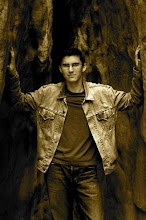
All Walker wants is his fair share...
Walker’s plan for revenge is fairly simple and straightforward: track down Reese and recover the $93,000 he stole. However, this proves to be anything but simple since Reese now belongs to The Organization, a powerful criminal syndicate. In order to get his man and his money, Walker will have to work his way up the chain of command, going all the way to the top of The Organization. Of course, this means fistfights, chase scenes, double-crosses, triple-crosses, and lots of killing. It also means strange interactions with Yost (Keenan Wynn), a mysterious informant who gives Walker information about The Organization, and a little steamy romance with Chris (Angie Dickinson), Walker’s ex-wife’s sister who becomes his somewhat unwilling accomplice as he searches for revenge.

Dead and dreaming? The mysterious Yost tells Walker about The Organization while he remembers his remarkable escape from Alcatraz Island.
Many critics believe that the main part of Point Blank is a dream. They argue that Walker actually dies in the opening, and the rest of the film is his dream of revenge. After watching the movie, I think I agree with this interpretation for several reasons.
First, Walker does seem to die in that Alcatraz cell. Even if he did survive being shot, it seems improbable that he could swim across San Francisco Bay, especially since a tourist guide tells us later in the film how impossible it is for anyone to escape from Alcatraz. When Walker’s asked by Yost how he did it, he remains silent on the subject.

Point Blank boasts incredible cinematography. The scene where Walker tracks down his unfaithful wife was my favorite moment in the film...
Second, there’s the mysterious Yost whose interactions with Walker are fascinating. They never look at each other; they talk while staring off camera; Yost comes and goes, mysteriously appearing at convenient moments to help Walker’s mission. All of this suggests that Yost is a specter, a character in Walker’s imagination.
Third, there’s the scene where Walker visits his unfaithful wife Lynn who, overcome with guilt, either commits suicide or dies of an accidental drug overdose. Shaken by this, Walker wanders around his wife’s house and notices that all the furniture’s gone. Then, her body’s gone. Then, suddenly, everything returns to “normal.”
Fourth, there’s the frequent use of visual tropes like mirrors, reflections, windows, transparent barriers, etc. that suggest there’s more to what we see than what meets the eye.
Fifth, this movie blends film noir conventions and New Wave techniques, resulting in a very dreamlike and hyper-real look. Many directors have imitated this, and I’d be willing to bet that David Lynch stole a thing or two from this movie.
However, ultimately, I’m not sure it matters whether or not Point Blank is “real” or a “dream.” The best movies, I’ve always found, are the movies that support multiple interpretations without necessarily establishing any particular one as the “legitimate” or “ultimate” view. Point Blank does that. There are plenty of interpretations, but in the end this movie is about what we see, not what we think. It’s a visceral thrill.

Payback may be an unnecessary remake, but it's still a fun remake.
Before I close, I feel compelled to mention Mel Gibson’s Payback, a 1999 remake of Point Blank. Critics have been unjustly harsh to this movie, I think. No matter what people say, I still have a fondness for Payback. It’s not an overly great or highly original movie by any stretch of the imagination. It keeps Point Blank’s neo-noir conventions while abandoning its art-house style. However, I don’t think that negates the movie. Ultimately, Payback is infinitely more fun than Point Blank (probably because Mel Gibson is infinitely more fun than Lee Marvin), and some days that’s all I want out of a movie.

[On a side note, Stanley Fish has written an excellent critique of the revenge genre on his New York Times blog. Point Blank is mentioned. For those interested in reading it, click here.]

No comments:
Post a Comment